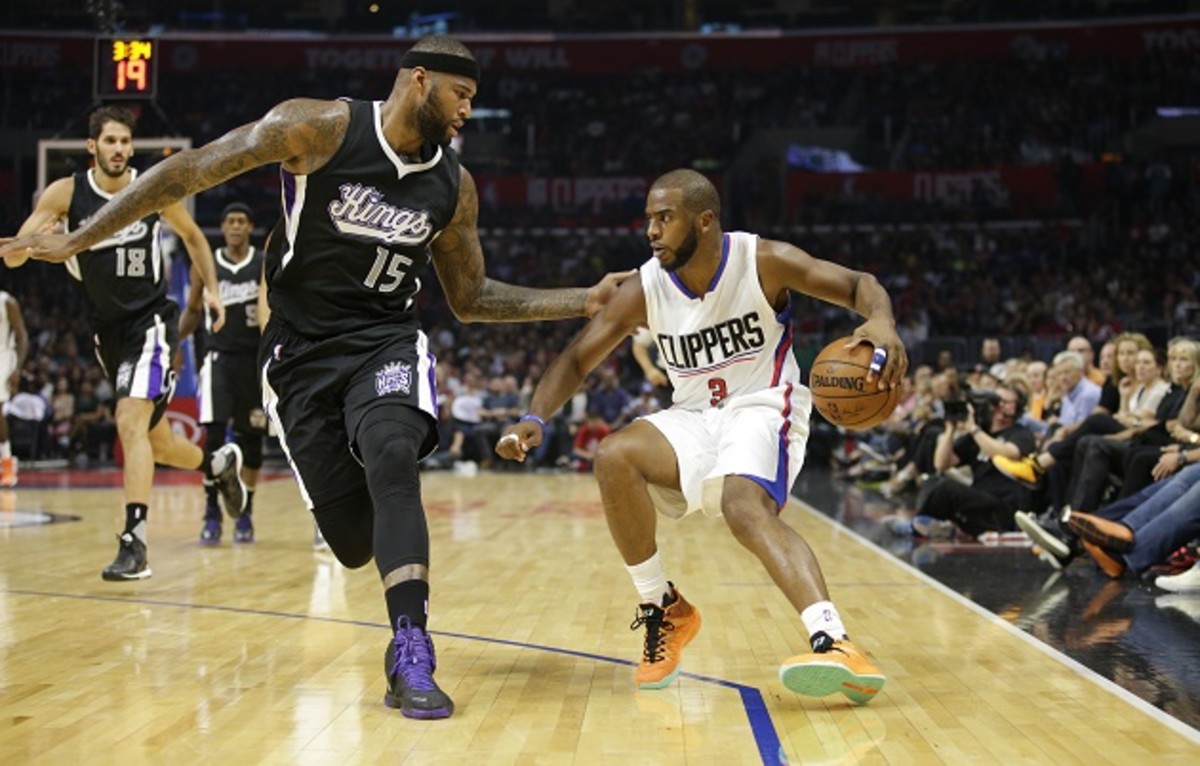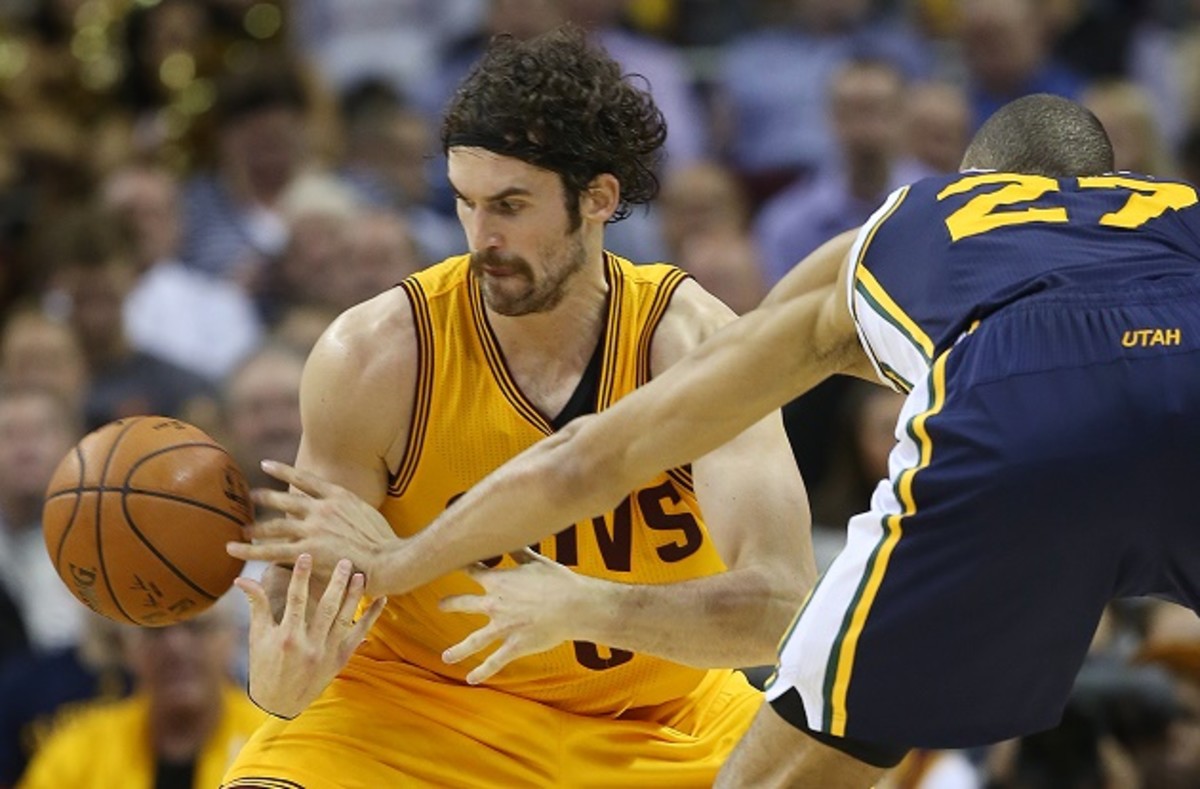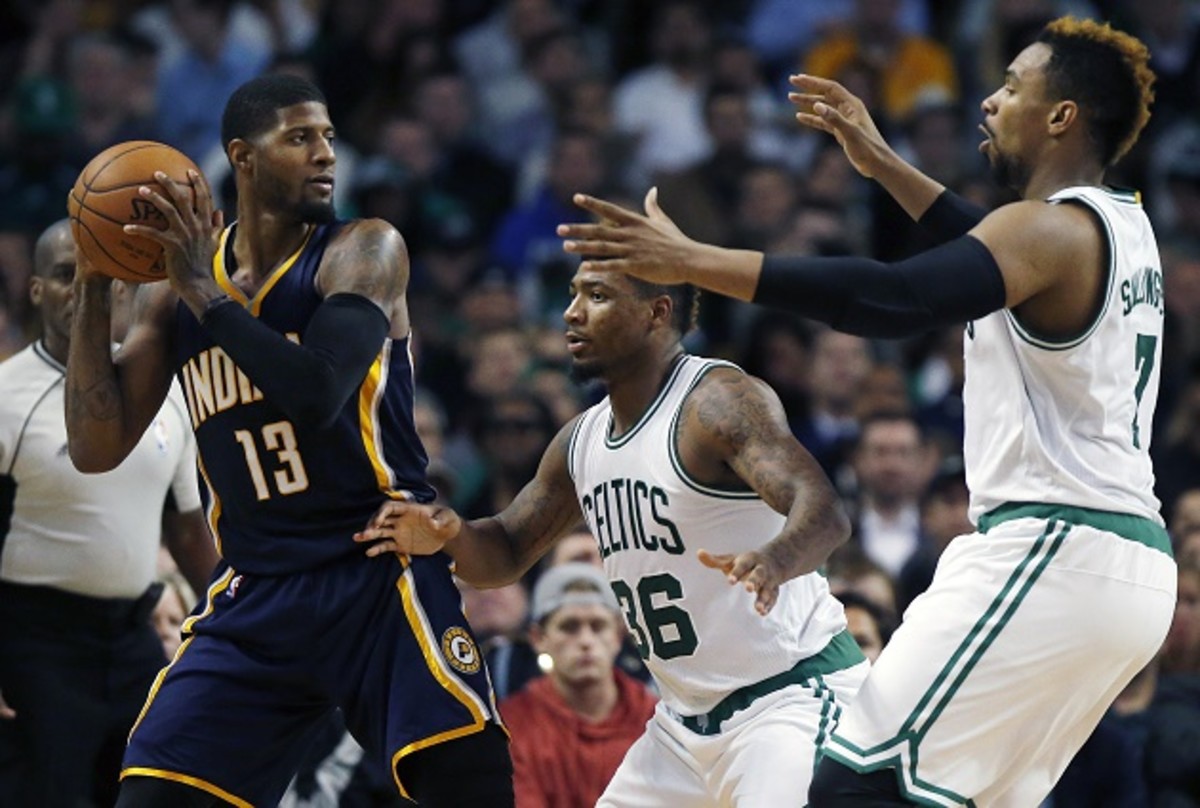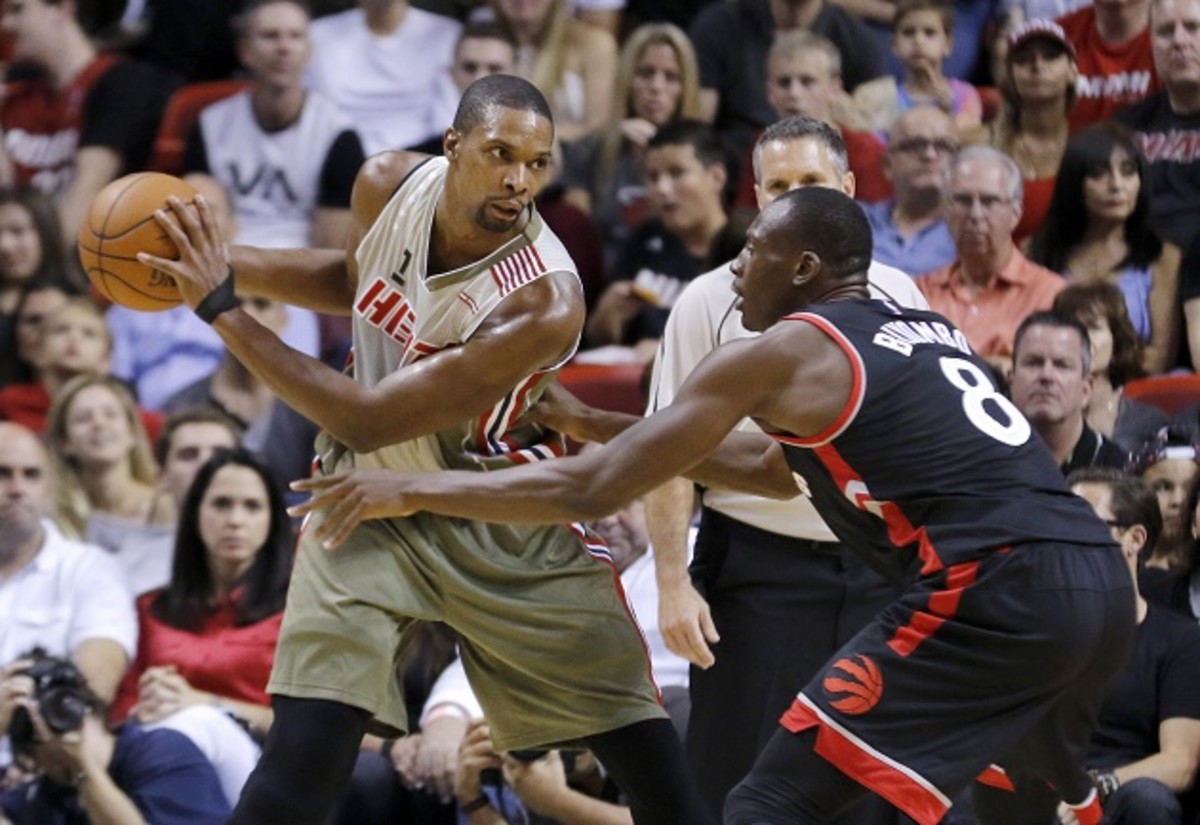Four NBA stars who could be on the move before the trade deadline

One of the driving issues of the current NBA collective bargaining agreement was creating incentive for star players to remain in their cities, and in terms of free agency, it’s worked. Most stars end up re-signing with their current team because of the extra year and dollars available to them through the CBA rules.
But thanks to some smart management and the enormous new TV contract that will greatly increase the salary cap starting next summer, there are plenty of teams sitting on veritable war chests of assets that are waiting for a franchise-level player to come available so they can pounce. Given the dearth of these types of players that hit the trade market, any star that becomes available could net his franchise a very considerable return, which may lead to some surprising names getting mentioned as early as this trade deadline. Here are four names that could bear watching:
DeMarcus Cousins, Sacramento Kings

This was the obvious one heading into the season, given the public strain between Cousins and head coach George Karl stemming back to the spring. It started to come to a head this week with reports of Cousins cursing out Karl in the locker room and Karl being overruled on a suspension of Cousins by team management. To this point, general manager Vlade Divac and owner Vivek Ranadive have resisted moving Cousins, and rightfully so, but it looks like something will have to change for the Kings to productively move forward in their rebuild.
Karl’s desire to rid himself of Cousins has been well-documented, and centers around a tension that’s been a staple of every Cousins/coach relationship with the exception of Mike Malone. While Divac and Ranadive still seem to have his back, Cousins can be extremely difficult, and his moodiness and tendency to act out when things don’t go his way have worn on many within the organization.
The Kings are determined to make their way into the Western Conference playoffs, but have assembled a potentially combustible group (including Rajon Rondo) to do so. The team’s 1–7 start (aided by Cousins missing four games through injury) then fanned some flames of discontent. Although the odds of Ranadive and Divac picking Karl over Cousins are slim to none at this point, they could very well opt to part ways with both.
Though their trade with Philadelphia over the summer indicates the Kings are all-in on being competitive quickly, Rondo is only on a one-year deal and it is conceivable the Kings could take a step back to take several forward. In that scenario, Cousins has a lot of trade value and could bring back a (wait for it) King’s ransom, paving the way for a proper, efficient rebuild.
Kevin Love, Cleveland Cavaliers

It may seem strange that personnel executives would look at a player who just signed a five-year, $110 million deal this summer as somehow on the market. Then again, the rapidly rising cap makes deals like that much more acquirable, and there’s very little about Cleveland right now that one would call conventional.
Love didn’t fit in last season, in part because of his own struggles, but mostly because of how he was used. Owing to LeBron James’ usage and effectiveness at the 4 — Love’s only effective position on the floor — Love was largely limited to being a standstill shooter. This isn’t an indictment of Love as a player, who remained effective despite the downsized role. Rather, it speaks to the Cavaliers needs, at least last season, being different than what Love offered.
Love has been much better and more heavily used in the opening stretch of this season, perhaps in part because injuries have ravaged Cleveland’s backcourt, so more touches are available. Still, this relationship feels tenuous.
Signing a max deal was a perfectly reasonable move for both sides. The Cavaliers gave up a lot to get Love, and are in win-right-now mode as the back end of LeBron’s prime rolls past. Between salaries and taxes, Dan Gilbert is funding the team to a level that’s unprecendented in the NBA. Love, meanwhile, could lock in as much guaranteed money as possible, and then see if things could evolve better. If they don’t, his overall talent and being signed to a a five-year deal means Love has a lot of trade value.
The late signing of Tristan Thompson to a five-year deal gives Cleveland the option to move Love for a meaningful package of players and assets. Thompson’s defensive skillset and comfort operating without the ball makes him infinitely more suited to play center next to James than Love is. So, if Love continues to have difficulty fully fitting in, especially when Kyrie Irving returns from injury, the Cavaliers would be able to fill every need around James and Irving while getting younger and deeper, which is something the Miami Heat failed to do when they had James.
Paul George, Indiana Pacers

This is the surprise name on the list, and with the way George has started the season — despite initial misgivings about being moved principally to the 4 — it may make this one a longer-term proposition.
Still, it’s worth discussing. The Pacers made some significant roster changes in the off-season, radically altering how they’re built to play. Gone are Roy Hibbert and David West (who turned down an extra eight figures in salary to sign with the Spurs), with Monta Ellis being added to help Indiana move toward a pace-and-space approach that featured George (coming off his broken leg) at power forward.
Pacers management expects the team to be good — particularly in a still-weakish East. Beyond the drafting of compelling prospect Myles Turner, there’s a veteran core on this team that is familiar with winning. Unfortunately, they’ve downgraded a lot defensively, and that could lead to some indecision as to what the new-look Pacers really are.
Neither Larry Bird nor Donnie Walsh are apt to go for a full teardown. So while you don’t see a 25-year-old star — George emerged as an MVP-caliber player in 2013–14 before breaking his leg in a freak accident during a USA Basketball scrimmage — come on the market very often, he could yield a ton in return if Indiana thinks that’s the best way to rebuild, and that George won’t be happy long-term at the bigger forward spot.
Chris Bosh, Miami Heat

Perhaps no team in the NBA has a wider gap between ceiling and floor than the Miami Heat. They’re talented, deep, have championship experience and a very healthy mix of young athletic players and established veterans. They also have a roster littered with players who have been extremely injury prone.
Dwyane Wade, Luol Deng, Chris Bosh, Amar’e Stoudemire and Josh McRoberts have all had trouble staying on the floor in recent years. If they’re all healthy at the right time, the Heat can be one of the top two teams in the Eastern Conference, with a puncher’s chance of knocking off Cleveland. Or, if the injury bug hits hard enough, they could be a lottery team.
The Heat also boast one of the league’s most explosive payrolls: They’re approximately $5 million over the luxury tax line, with the dreaded repeater tax looming — and that’s with their trade of Mario Chalmers. Needless to say, they have a vested interest in getting below the tax line. They will continue to explore moves to shed salary without adversely affecting the product on the floor … if the product on the floor is worth it.
Heat owner Mickey Arison has proven he’s willing to pay the luxury tax for a title contender, but you can’t blame him for not footing the bill for a bubble playoff team — or, worse still, a lottery team. The repeater tax, meanwhile, is just extra salt in the wound. It’s also been well-documented that Heat president Pat Riley plans to chase Kevin Durant this summer. It would certainly help Riley’s case to have enough cap space to give Durant the help he needs (or wants, depending on how deferential the Heat are willing to be), and also provides Miami with some more flexibility regarding Dwyane Wade, who also will be a free agent next summer after his one-year deal expires.
Enter Chris Bosh, who still has four years remaining on a max deal. However, that contract was signed before the new TV money kicked in, so it will be much more affordable in the new cap environment. There are going to be a glut of teams with cap space next year, and a shortage of players worthy of the kind of money that stands to be available.
Bosh has a lot of value around the league. If the Heat are going nowhere this year, trading Bosh gets them under the tax line and would return a decent package of players and assets. The added bonus is that it gives them that much more of a clean slate to attract Durant. If the Heat aren’t going to contend this season, there are better ways of maximizing Bosh — ones that could help jump-start another rebuild.

